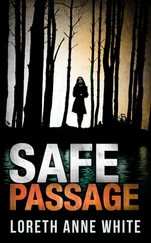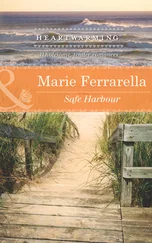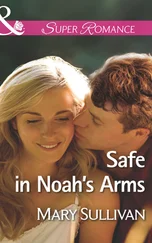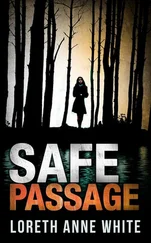To Claudia, we owe the beginning of our collection of star snapshots, a hobby that was to acquire considerable significance later. Many in the queue were, of course, ardent autograph hunters, but I thought it would be more fun to have snaps of the stars instead. Nowadays, dozens of people do this, but it was something of a novelty when I first produced my ten-shilling Brownie box camera, which was about my mental level, photographically speaking.
I never photographed an artist without asking permission first, so I started by asking Pinza if I might photograph Claudia one morning as he came from rehearsal. Not only was permission given, but Pinza insisted on being in the photograph as well, and made me take two pictures to make sure.
The result was one of the best snaps I ever took, and I sent an enlargement of it to Claudia’s parents. A few days later, the little girl was brought along the queue during lunch time, and she thanked me in carefully rehearsed English. She was a charming child!
During that first season, the snap collection grew rapidly, though it was not until the following year that I plucked up enough courage to ask Ponselle herself. As I told her long afterwards, I used to follow her through Embankment Gardens, near the Savoy Hotel where she stayed, trying to summon enough courage to ask if I might photograph her. She was very much amused, but a good deal mystified as to why anyone should ever have been in awe of her. But in those days, our stars were gods and goddesses to us, and I must say that their remoteness and mystique added greatly to their charm and glamour.
On the night of what was to be Ponselle’s final appearance, she was unwell and Pacetti sang instead. I remember when Louise and I arrived at the queue that evening, Ray announced with a sort of malicious relish for the drama of the moment, “Ponselle has sung her last performance.”
Thinking she must have walked under a bus or something, we gave gratifying shrieks of horror. Then Ray saw fit to explain. He was referring only to that season and that there had been a cancellation. But he spoke more truly than he knew. She never returned to Covent Garden to sing again. The following season was an entirely German one, and in later years, the management changed, and of course Ponselle made other connections. She had indeed sung her last performance at Covent Garden. Fortunately, we were unaware of it then and went on hoping for some years longer.
The next day, Louise and I received some compensation for that final cancellation: one of the very few personal letters written by Ponselle at that period. She was never a great letter-writer and, in the busiest days of her career, she scarcely ever put pen to paper. But, in return for the snap I had sent her, she sent a wonderful photograph of herself in the third act of Traviata with a note saying that if we came to New York again—which we had mentioned as a possibility one day—we were to come around backstage at the Met to see her.
Something else occurred about this time that tended to take my mind off any disappointment. I had continued to write the occasional article for Mabs Fashions , and I received a letter from the editor saying that she would like to meet me. Would I come to see her one afternoon?
I obtained permission to leave my Law Courts’ office early one afternoon and went to Fleetway House to see Miss Taft—the woman to whom I owe all my training and all my early chances. I had never entered a publishing office before, much less been interviewed by an editor. But she soon put me at my ease and made that most flattering of all requests: to talk about myself.
I did so. At great length, I am sure.
“But did you never think of becoming a journalist?” Miss Taft asked.
“Oh, no!” I assured her, rather shocked. I was a permanent civil servant with a pension at sixty. Safe until I was nailed down in my coffin, in fact.
She was unimpressed and merely said, “Well, think about it now. I am going to start a new weekly in the autumn, and I should like you for my fiction sub.”
I didn’t really know what a fiction sub was, but I was flattered that anyone wanted me as anything. However, it still sounded terribly unsafe in comparison with my civil service job. This all sounds quite extraordinary now, I have no doubt, but in those days there were three people waiting for every job. So I continued to shake my head doubtfully.
“Well, go away,” said Miss Taft, smiling, “and think it over. If you do want the job, it is yours.”
I went away and not only thought about it, but being very loquacious by nature, I talked about it too. Several people said, “But it’s a great chance! Don’t just throw it away. People are walking about ready to give their eye-teeth for that sort of chance.”
When I thought about it again, the pension at sixty didn’t seem quite so attractive, after all. In the end, I gave up my lovely safe job and the pension and went into Fleet Street as a fiction sub-editor at four pounds four shillings a week—one pound and four shillings more than I was getting as a government shorthand-typist.
And there, for the first several months at any rate, I was a complete failure.
I suppose it was inevitable. Most girls who go into that world do so at a much earlier age and learn the general jargon and rudiments of the profession as juniors. I hardly knew what people were talking about, much less what I should be doing, and I must have been a phenomenally slow learner.
When they gave me short articles to write up, I was fairly happy, but in periodical make-up I was an infant in arms, and not a very intelligent one, at that.
As fiction sub, one of my most horrible tasks was to arrange the proportional size of illustrations and copy. The original illustrations that come in are perhaps twenty by thirty inches. By a system of simple mathematical calculation, which to this day I have never grasped, a measurement along one side must indicate what the general size of the finished “pull” should be. Mine was the wildest guesswork. The pulls either came up like postage stamps or like recruiting posters, and I suppose I must have wasted a good deal of the firm’s money in useless “blocks.”
Also, I was not at all good at estimating the space that the “copy,” or printed matter, would take up. Consequently, on press day I was faced with hair-raising and expensive cutting or with the even more grisly task of adding perhaps five hundred words to a story, without altering its sense, and so that no one could detect the “joins.” This was the only part of my work at which I became adept—presumably because I had so much practice. Again, dreadfully expensive to the firm.
In addition, I had made as a condition of my accepting the post that I be allowed four or five weeks’ leave early in the new year. Louise and I had made all our preparations for another visit to the States. I was sufficiently honest to make it clear that if this proviso was unacceptable, I was prepared to forego the job.
This proviso was accepted. What I had not sufficient sense to see was that for one member of a small staff—and the least efficient one by far—to go junketing off to the States during the difficult first months of launching a new publication could hardly make me popular with all and sundry.
Even I knew that I took my departure in anything but a harmonious atmosphere. Nowadays, I would have enough sense to compromise and smooth things over. Then, I was crude, and silly enough to stand on my—undoubted—rights, and go off, feeling justified, if uneasy.
In those early weeks of 1932, America was still suffering badly from the depression, and the atmosphere was very different from the gorgeous prosperity of our first visit, five years previous. Even so, there were vigorous signs of recovery. And so far as our own future was concerned, Louise and I saw things in pretty bright colours.
Читать дальше
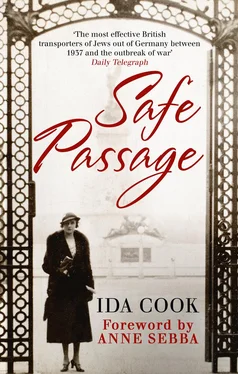
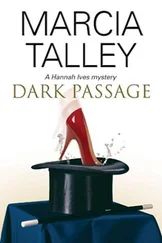

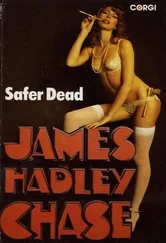

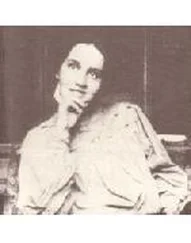
![Джеймс Чейз - Not Safe to Be Free [= The Case of the Strangled Starlet]](/books/417649/dzhejms-chejz-not-safe-to-be-free-the-case-of-the-thumb.webp)
